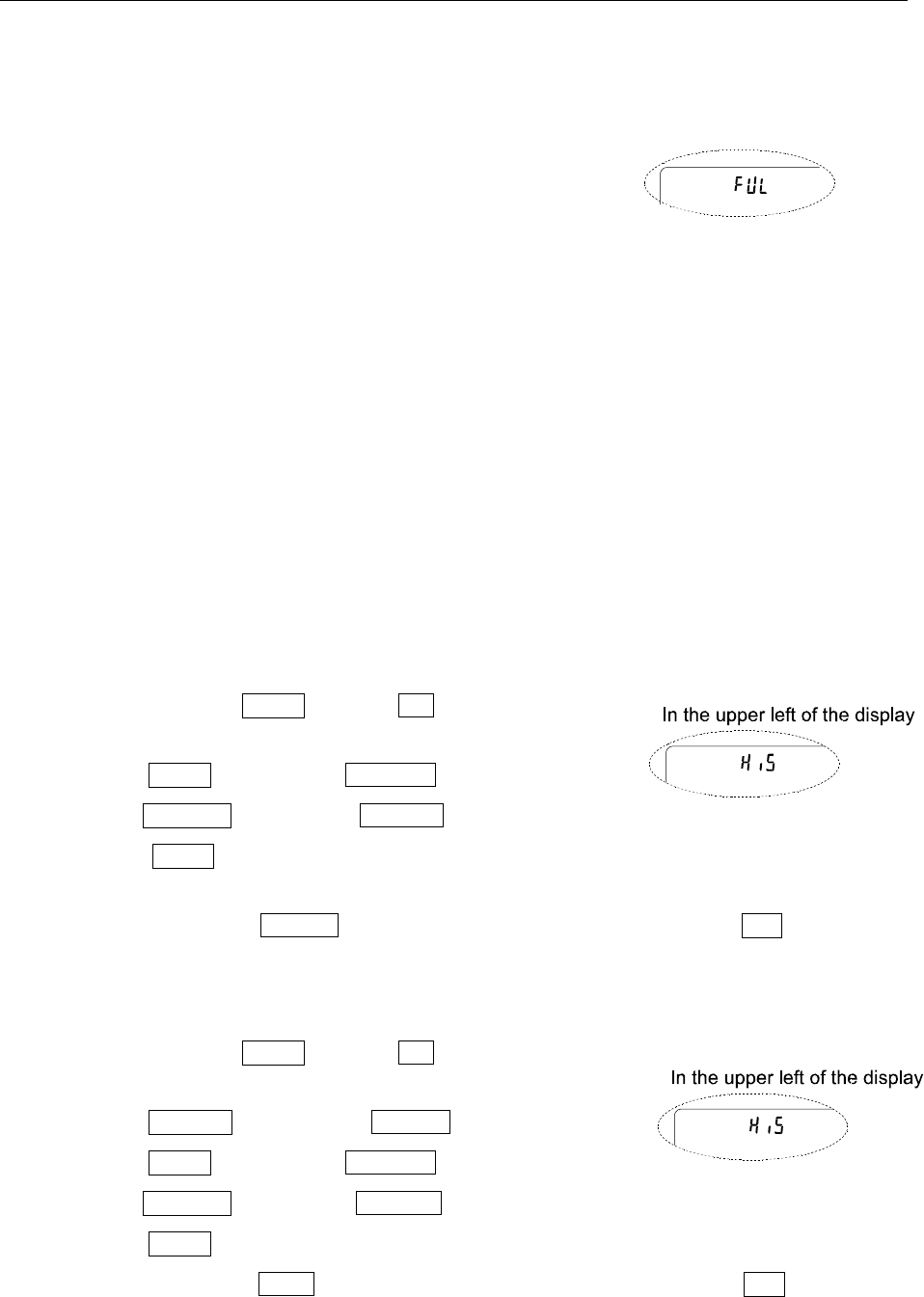
62
11-3 Memory for Calibration and Calibration Test Data
Calibration data (when and how it is performed) and calibration test data can be stored in memory.
All the data in memory is available to be output at one time to a printer or personal computer.
Up to 50 data sets of the latest calibration or calibration test can be stored. When the memory
capacity has been reached, “fUl” illuminates in the upper left of the display as shown below.
Storing the calibration and calibration test data
Note
If “Clr” appears blinking in the upper left of the display, delete the data in memory.
Store the calibration and calibration test data as follows:
1 Set the “Data memory (data)” parameter to “3”.
2 Set the “GLP output (info)” parameter to “1” or “2”.
3 With the settings above, each time calibration or calibration test is performed, the data is
stored automatically.
Transmitting the memory data
Confirm that the “Serial interface (5if)” parameters are set properly. For details, refer to “9.
FUNCTION TABLE” and “15. CONNECTION TO PERIPHERAL EQUIPMENT” and also confirm that
the “Data memory (data)” parameter is set to “3”.
1 Press and hold the PRINT key until out is displayed, then
release the key.
2 Press the PRINT key to display Sout no with “no” blinking.
3 Press the RE-ZERO key to display out go with “go” blinking.
4 Press the PRINT key to transmit all memory data using the
RS-232C interface.
5 The balance displays Clear when all memory data is output. Press the CAL key to return
to the weighing mode.
Deleting the memory data
1 Press and hold the PRINT key until out is displayed, then
release the key.
2 Press the SAMPLE key to display Clear .
3 Press the PRINT key to display SClr no with “no” blinking.
4 Press the RE-ZERO key to display SClr go with “go” blinking.
5 Press the PRINT key to delete all data
6 The balance displays out when all the data has been deleted. Press the CAL key to return
to the weighing mode.


















